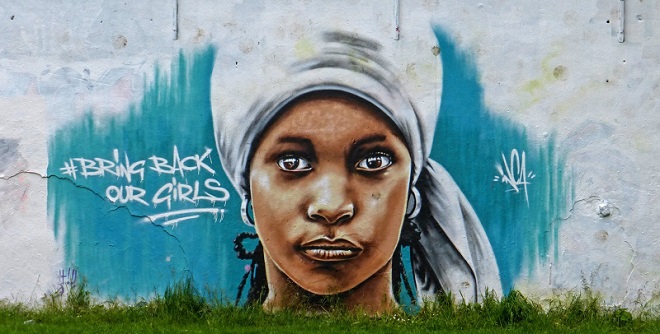
Study shows why rebels in Burundi and Uganda trained their fighters to scorn sexual coercion
Kampala, Uganda | ANGELA MUVUMBA SELLSTROM | War zones and conflict sites are incredibly dangerous for anyone living in them, but women are often particularly vulnerable in these spaces. Consider how, in recent years, Boko Haram in Nigeria and the Islamic State in Syria and Iraq have systematically abducted and abused thousands of women and girls.
This reality may make my research focus seem strange. It deals with wartime sexual violence – but more specifically the absence of it. My focus is on armed political actors that have committed little sexual violence and have a history of keeping their members’ sexual conduct in line.
This effort seems ridiculously extraneous in the current climate. However, as researcher Elisabeth Jean Wood has demonstrated, sexual violence patterns vary because armed groups are different. Their diverse politics, strategies and institutional “DNA” is evident in their varied wartime conduct.
Civil war research contends that armed actors who do not rely on civilians for support are likelier to abuse them. Movements that prevent sexual violence may be motivated to ensure good relations with the local population for pragmatic, operational reasons. They need shelter, food, information and recruits. But going further, how do they achieve sexual discipline over their fighters?
During my research in Burundi and Uganda, I have learned that some rebel and insurgent groups which emerge in societies with dreadful levels of gender inequality train their fighters to scorn sexual coercion. To them, rapists should be shunned or executed. These makeshift armies can offer valuable lessons in stopping sexual predation before it happens.
Learning from Burundi
Burundi was engaged in a bloody civil war from 1993 to 2005. During this time and afterwards, the Party for the Liberation of the Hutu People–Forces for National Liberation (or Palipehutu-FNL) was rarely associated with wartime rape or similar abuses.
This is particularly striking if we consider that the coinciding and bordering genocide in Rwanda – between similar “ethnic” groups and with comparable causes of conflict – included widespread sexual violence against Tutsis committed by Hutus, led by the then government-sponsored militia group known as Interahamwe. In Burundi, Palipehutu-FNL also attacked Tutsi civilians. However, its fighters did not permit or order sexual violence.
Fighters who engaged in sexual predation and violence were viewed as weak or opportunistic. This coincided with a culture of Christian purity. Most Burundians practice some form of Christianity, and the country’s political elite have often been vocal proponents of this faith.
The leaders of Palipehutu-FNL were no different. They and their followers were born-again Christians of one conviction or another. Its members referred to themselves as God’s army. Commanders and foot soldiers were held equally accountable to values, often formulated and practised within a religious context. Strikingly, they also developed confessional practices. Cohorts would name and shame one another in group prayers, for instance.
Finally, in the hierarchy of the group’s gender norms, the best men were those who could cast aside sexual conquest in the service of chivalry and their brotherly bond to the group.
Uganda’s story
In the 1980s, Uganda’s National Resistance Army (NRA) launched a rebellion with a handful of weapons and very few men. It defined itself as a people’s army, and depended heavily on support from the country’s peasant population. It is believed to have committed little to no acts of sexual violence.
Commanders and civilians I have interviewed told me that the group’s leaders presided over justice on behalf of civilians and exercised discipline against its fighters. The NRA code of conduct instructed members to refrain from shouting at, abusing or insulting the public. Rape was punishable by death.
 The Independent Uganda: You get the Truth we Pay the Price
The Independent Uganda: You get the Truth we Pay the Price



